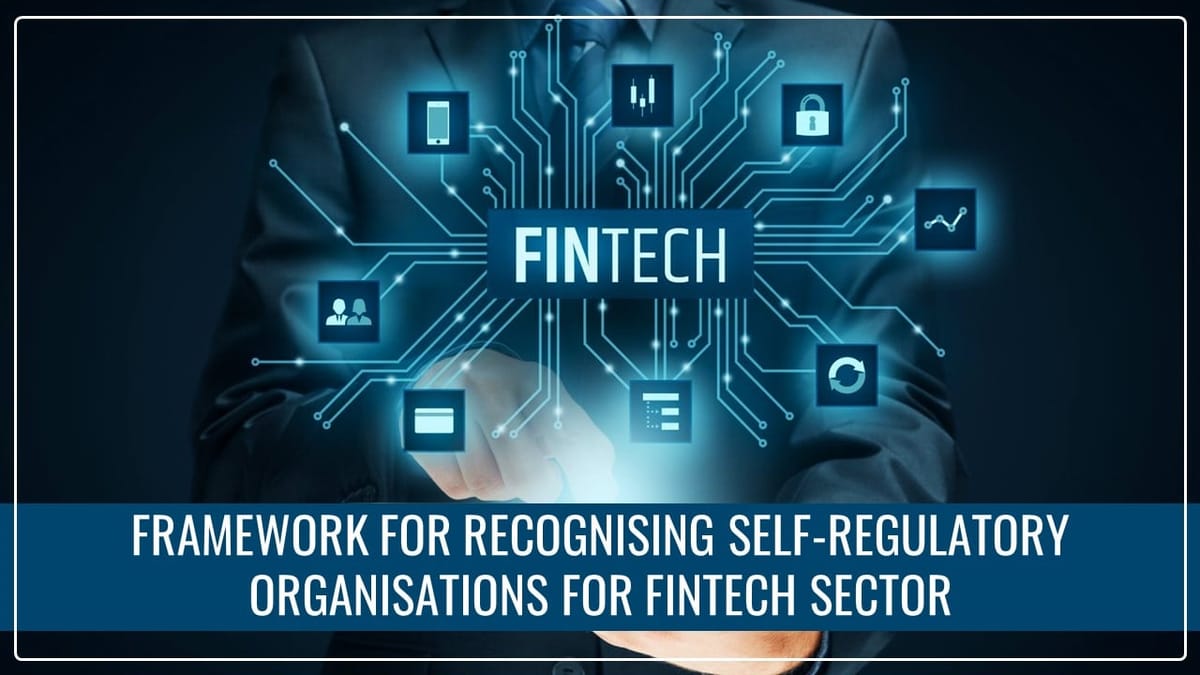Reetu | May 31, 2024 |

RBI issues Framework for Recognising Self-Regulatory Organisations for FinTech Sector
The Reserve Bank of India (RBI) announced the final framework for recognising self-regulatory organisations in the financial technology sector (SRO-FT), encouraging firms to have a fintech sector representative membership.
The framework defines fintech as enterprises that provide technological solutions for the supply of financial products and services to businesses and consumers, as well as regulatory and supervisory compliance, in collaboration with traditional financial institutions or otherwise.
An SRO-FT may include fintechs that are currently regulated by the RBI, such as non-banking financial companies-account aggregators (NBFC-AA) and NBFC-peer-to-peer (P2P) lending platforms, but not banks.
The banking regulator has stated that there may be more than one SRO-FT, and fintech companies are urged to engage in at least one.
SROs for the fintech sector should also be independent of influence, encouraging members to adhere to regulatory standards and serving as a repository for information. The RBI recommended that the oversight framework be activity-based, risk-based, scale-based, and phased-in.
The self-regulatory organisations (SRO) will be industry-led and will be in charge of creating and implementing regulatory standards, promoting ethical behaviour, guaranteeing market integrity, settling disputes, and encouraging transparency and accountability among its members.
The RBI has requested that SROs be based on a representative structure, allowing them to draw on the combined expertise and experience of its members, resulting in the formulation of pragmatic, flexible, and broadly accepted norms throughout the fintech community.
SROs have been asked to encourage their members to align with regulatory priorities and improve communication with the regulator, i.e., the Reserve Bank.
The SRO’s shareholding should be sufficiently diverse, with no entity holding 10% or more of its paid-up share capital, either individually or in concert. The SRO might include fintechs from outside of India as members, according to the central bank.
The SRO-FT shall establish processes for managing ‘user harm’ incidents that are brought to its attention or referred to it by the RBI or any other stakeholder. Fraud, misselling, unfair practices, unauthorized transactions, and any other type of misconduct that harms financial service consumers are examples of user damage.
SRO-FT should not establish entities or offices overseas without the RBI’s approval.
In case of any Doubt regarding Membership you can mail us at contact@studycafe.in
Join Studycafe's WhatsApp Group or Telegram Channel for Latest Updates on Government Job, Sarkari Naukri, Private Jobs, Income Tax, GST, Companies Act, Judgements and CA, CS, ICWA, and MUCH MORE!"